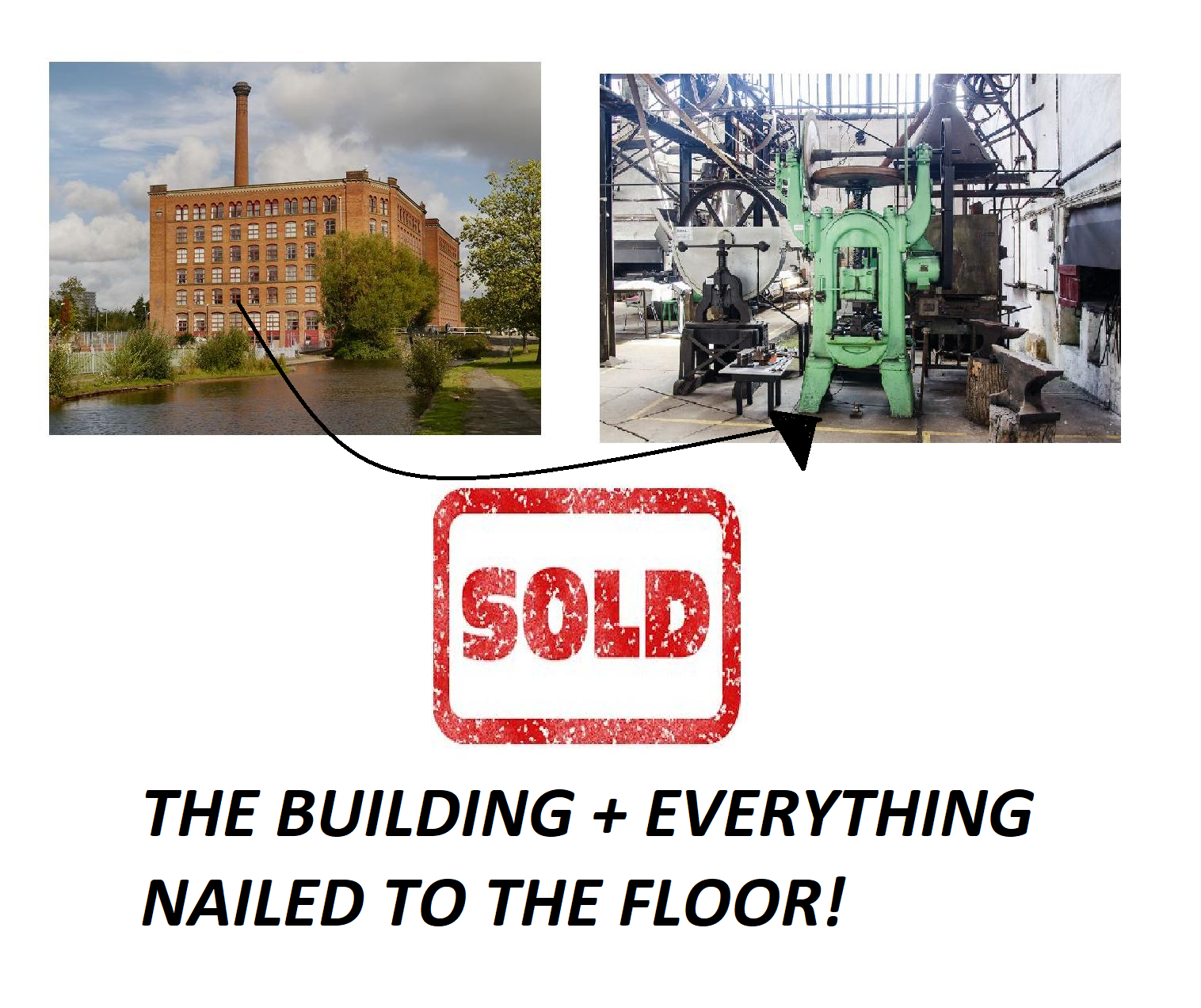Holyroyd and Others v JG Marshall and Others, (1862) 10 HLC 191 11 ER 999
Citation:Holyroyd and Others v JG Marshall and Others, (1862) 10 HLC 191 11 ER 999
Rule of thumb:If you buy heritable property do you keep what’s inside? If you buy property, you own everything that was nailed to the ground or virtually nailed to the ground and would require a tow-truck to move it.
Background facts:
The basic facts of this case were that Holyroyd had a registered security over machinery & goods in a factory in case of default on a debt owed to them. This factory and the machinery within it was sold to a new purchaser and the debt for the machinery was then defaulted upon.
Parties argued:
The new owner argued that they were not subject to the security over the machinery & goods, so they could keep the machinery and Holyroyd’s security had no effect against them. The new owner further argued that the machinery had been replaced with new machinery since the time of the security.
Judgment:
The Court did not uphold any of the new owner’s arguments. Holyroyd’s security over the machinery survived a change of ownership of the factory and a replacement of the machinery. They were entitled to take the machinery as payment for default on their debt. The Court affirmed that creditors who obtain securities and list these securities on public registers have priority status in any insolvency process, and that this is a fundamental tenet of insolvency law. The Court also affirmed in this case that the principle a legal argument is being based on is often the best way to make any legal argument, and this can also even go all the way back to Roman to find the first traces and origins of the principle first being used.

Ratio-decidendi:
‘There can be no doubt, therefore, that if the mortgage deed in the present case had contained nothing but the contract which is involved in the aforesaid covenant of Taylor, the mortgagor, such contract would have amounted to a valid assignment in equity of the whole of the machinery and chattels in question, supposing such machinery and effects to have been in existence and upon the mill at the time of the execution of the deed... if a vendor or mortgagor agrees to sell or mortgage property, real or personal, of which he is not possessed at the time, and he receives the consideration for the contract, and afterwards becomes possessed of property answering the description in the contract, there is no doubt that a Court of Equity would compel him to perform, the contract, and that the contract would, in equity, transfer the beneficial interest to the mortgagee or purchaser immediately on the property being acquired... Apply these familiar principles to the present case; it follows that immediately on the new machinery and effects being fixed or placed in the mill, they became subject to the operation of the contract, and passed in equity to the mortgagees, to whom Taylor was bound to make a legal conveyance, and for whom he, in the meantime, was a trustee of the property in question...’, Lord Westbury, ‘My judgment rests upon Lord Bacon's maxim, 'Licet dispositio de interesse future sit inutilis, tam fieri potest declaratio præcedens quoe sortiatur effectum, interveniente novo actu.' Before any subsequent act is done, the assignment gives an equitable interest as between assignee and assignor; but a legal interest subsequently, bona fide acquired before possession taken by the equitable assignee shall prevail’, Lord Campbell LC
Warning: This is not professional legal advice. This is not professional legal education advice. Please obtain professional guidance before embarking on any legal course of action. This is just an interpretation of a Judgment by persons of legal insight & varying levels of legal specialism, experience & expertise. Please read the Judgment yourself and form your own interpretation of it with professional assistance.

